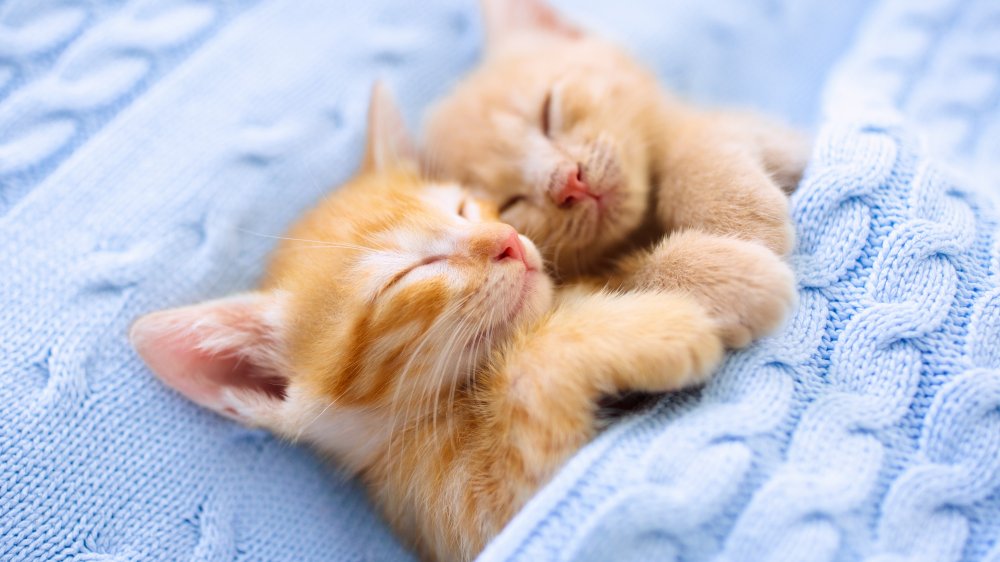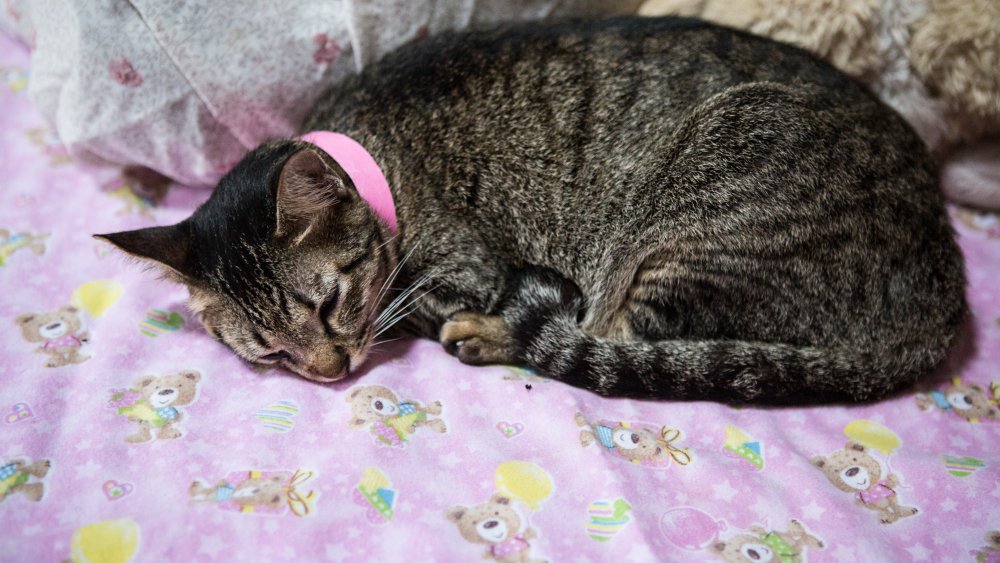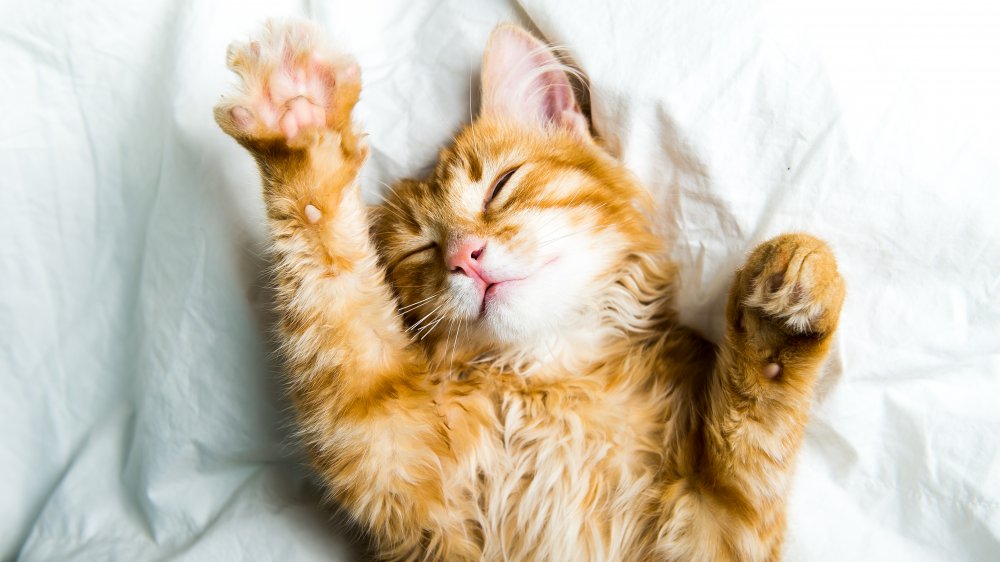The Real Reason Your Cat Sleeps So Much
Your cats are the rulers of your castle ... er, home. They are the indifferent overlords of their humans. They don't go around following people to demand affection, and rarely beg for food. Cats also tend to sleep all day, luxuriating in the knowledge that someone will be around to care for them anyway. Or so it seems. In truth, your cats aren't being lazy or acting like they own your house. Their sleeping patterns are a holdover from their previous life as hunters.
Cats, even domesticated varieties, are by nature hunters, explains Purina. Much like big cats, the lions and tigers and oh mys of the animal kingdom, house cats have an innate drive to hunt for their food. Even if you feed them regularly, their instinct is to still look for prey. As hunters, cats conserve their energy so that when they start to run after their next meal, they have the energy to do so. Similarly, lions often sleep in the middle of the day, says the Sleep website, especially when they know they're on top of the food chain and don't need to protect the pride as much.
Domesticated cats function the same way. Their instinct tells them to sleep so they have the energy to hunt as much as they need. It's a little dark to think about but, as Southern Living pointed out, cats never know when the gourmet cat food is going to run out. They need to be ready.
They are champion sleepers
Purina writes that cats sleep anywhere from 12-20 hours a day. Kittens sleep even more because, like newborn humans, they need energy for growth. As they age, cats tend to need less sleep.
As hunters, cats don't sleep all that deeply. They can wile away hours of the day, but the moment there's some noise, cats immediately go onto the defensive. That's because cats have short sleep cycles and enter deep sleep only for 10-15 minutes, said Cat Behavior Associates, another pattern left over from the wild. Despite being on top of the food chain, big cats still need to defend themselves, and domesticated cats are no different. You'll know when your cat exits deep sleep and is more or less just napping. Their ears move every so often and turn to the direction of sound. Their eyes won't be fully closed, either.
You'll also notice that cats change their sleeping positions depending on the weather. If it's cold, cats tend to curl up and conserve heat. Or they sleep on top of you, to feed off of your warmth. Sometimes they even mold themselves in a box if they're cold. Cats also adapt their sleeping position to warmer weather: They'll stretch out so more of their bodies are cooled down.
They're unfortunately awake when you're not
So you know your cat sleeps all day, but why do they have to wake you up in the middle of the night? Millions of cat owners have tried so many ways to keep their cats out of their bedrooms, or opening doors at 5 in the morning. Some people try deterring them with a tub of water in front of doors, as in this YouTube clip. Not so much.
Ultimately, you must accept that cats are most active during dusk or dawn — again, a holdover from their pre-domestication days. Purina noted this sleep schedule helped lions and tigers become efficient hunters. Prey are less likely to notice dangers lurking in the lengthening shadows of their surroundings, making them easier targets. This is the time where all that energy they stored from sleeping most of the day gets used. It's not fun for you, but that's just how your cat is built. Some house cats do adjust their sleeping schedule, especially if they've grown attached to you.
It's important to pay attention to your cat's sleeping habits. If they become lethargic, less alert, or refuse to eat, something might be wrong. Southern Living explained cats are creatures of set behaviors. If they deviate from this — sleeping longer, or don't want to eat — talk to your veterinarian. Soon enough, the lord of your castle, Sir Fluffy Tabby Cat, will be back to his old sleepy self.


